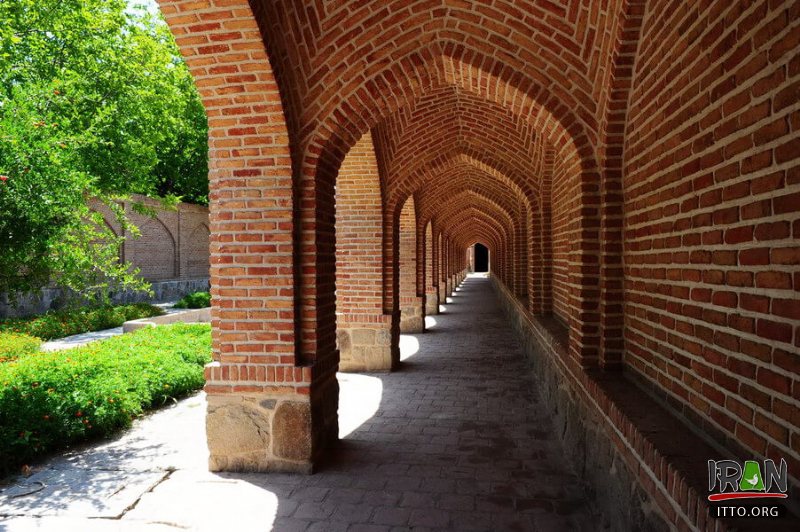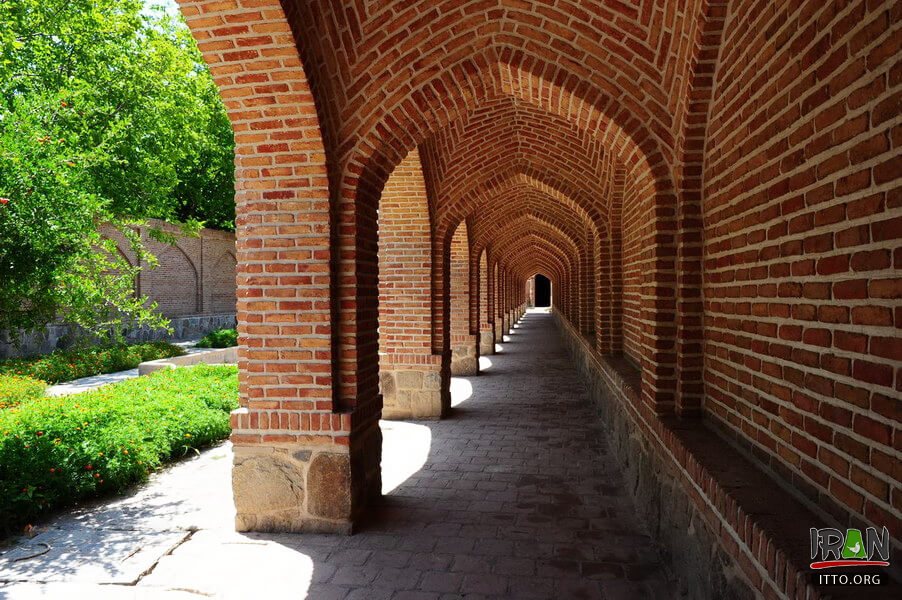Located in Jolfa, northwestern East Azarbaijan province, Kordasht bathhouse (Hammam-e Kordasht) dates from over four centuries ego, the time of Safavids. Its required water is obtained from the Aras River and after being warmed finds its way to different pools there.
Entrance to the bath is possible through a staircase leading to the first vestibule, bringing visitors to an octagonal shaped changing room that has a domed roof supported by eight decorated columns.
A hallway connects the changing room to another octagonal room that contains the main pool. This room has a waterway that directs hot water into the pool and the room receives natural light via ducts in the ceiling. The monument is considered as one of the largest and most beautiful baths surviving in Iran.
According to Encyclopedia Britannica, Iranian architects of the early 17th century sought to achieve a monumentality in exterior spatial composition (an interesting parallel to the interior spaciousness created at the same time by the Ottomans); a logical precision in vaulting and a coloristic brilliance that has made their domes and portals of justly famous.



